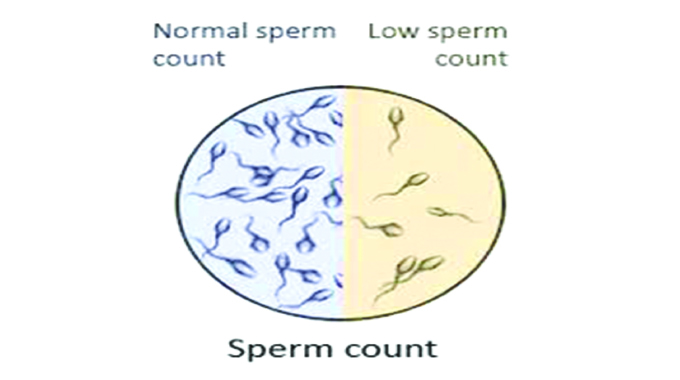Low sperm count, possible remedy

Miriam Nyasha Kwari – Herbalist
Hello friends and welcome again to our corner where we talk food as medicine.
This week, we will address an issue that affects men, especially from their middle age. A low sperm count, also called oligozoospermia, is where a man has fewer than 15 million sperm per millilitre of semen.
Having a low sperm count can make it more difficult to conceive naturally, although successful pregnancies can still occur.
Problems with sperm, including a low sperm count and problems with sperm quality, are quite common.
Getting your sperm count checked
It’s a good idea for both you and your partner to get advice as fertility problems can affect men and women and often it’s a combination of both.
It’s important to understand what the exact issue is before you decide on your next steps. This is where a sample of semen is analysed to check the quality and quantity of the sperm.
The results are usually available within a week. If the results are not normal, the test should be repeated to ensure it was accurate. This will normally be performed after 3 months.
Home sperm count testing kits
There are several male fertility home-testing kits available to buy from pharmacies. These tests claim to indicate whether your sperm count is low.
It may be tempting to try one of the tests if you would rather not see your Doctor, but you should be aware that:
- although research by the manufacturers suggests these tests can give an accurate indication of sperm count, they have not been extensively studied
- some home-testing kits classify a low sperm count as under 20 million sperm per millilitre of semen, but more recent international guidelines state that anything above 15 million sperm per millilitre of semen is normal
- some kits only check the number of sperm, not other things that can affect fertility such as how well the sperm are able to move (motility) — it’s best to use a kit that measures both these things
While these tests might sometimes give a useful indication of your sperm count, they may also give you false reassurance or may suggest your sperm count is low when it’s actually perfectly normal.
Causes of a low sperm count
In many cases, it’s not obvious what causes a low sperm count.
Sometimes problems with sperm count and quality are associated with:
- a hormone imbalance, such as reduced hormone production, a genetic problem, having had undescended testicles as a baby, a structural problem — for example, the tubes that carry sperm being damaged and blocked by illness or injury, or being absent from birth, a genital infection, varicoceles (enlarged veins in the testicles), previous surgery to the testicles or hernia repairs, the testicles becoming overheated, excessive alcohol consumption, smoking and using drugs, certain medications, including testosterone replacement therapy, cancer medications (chemotherapy), some antibiotics and some antidepressants, being overweight or obese
Treatments for low sperm count
If you or your partner has been diagnosed with a low sperm count, there are several options available.
Keep trying
Your doctor may initially suggest trying to conceive naturally for a little longer. Many couples conceive within the second year of trying.
You can help maximise your chances of conceiving by:
- having sex every 2 or 3 days — moderating your alcohol consumption and stopping smoking, staying in good shape, exercising regularly and having a healthy, balanced diet
Herbal supplements for low sperm count
I have always felt the need for “guchu ravanababa” from way back. We have had this in our culture at “dare”.
The men would be given “miti yechivanhu” to help cleanse the male reproductive system.
Let me know if you need to have more ideas but, in the meanwhile, the range of food items to be taken regularly are as follows:
Loads of fruit and veggies, especially our raw range of veggies, Ashwagandha tea, guava leaf tea, loads of nuts, loads of seeds, like flax, sunflower, pumpkin, butternut etc
Loads of teas from traditional brews, of the barks of such as muunga, mutowa, mubvee, muremberembe in mahewu, juice, water or beer, mufenje tea, maonde or some say makuyu tea or fruits, dates, Graviola range of teas for men
Remember to consult your herbalist for a personalised regime of teas and smoothies and drinks. We usually administer differently depending on the problem one may be experiencing.
Look after yourself and each other.
God bless.
Miriam Nyasha Kwari/0773378571/ [email protected]










Comments